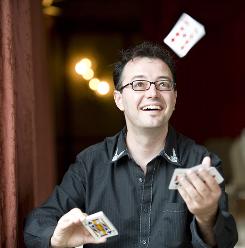According to a new study by UC Davis researchers published as an article this week in the
Clinical Journal of the American Society of Nephrology, the human brain naturally regulates its own sodium intake for the entire body. It's a controversial article based on a research study that has prompted nutritionists to ask more questions than the study answers.
The new study gives UC Davis researchers the opportunity to challenge FDA guidelines asking consumers to reduce sodium levels when eating, especially when choosing processed or restaurant food.
According to the
study, "Dietary Sodium and Cardiovascular Health in Hypertensive Patients, the Case Against Universal Sodium Restriction," the
Journal of the American Society of Nephrology reports in the newly published abstract of the study that, "Only a single study has been reported in hypertensive patients that links baseline sodium, measured by 24-hour urinary excretion, and subsequent cardiovascular outcomes."
In that study, controlling for other risk factors, there was a "significant, independent, inverse association of urinary sodium excretion and coronary morbidity and mortality. Indeed, an increase of 66 mmol/24 h was associated with a 36% reduction in events."
